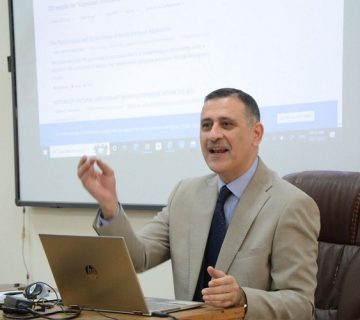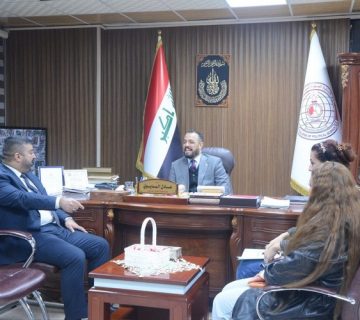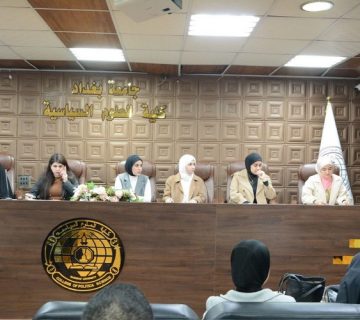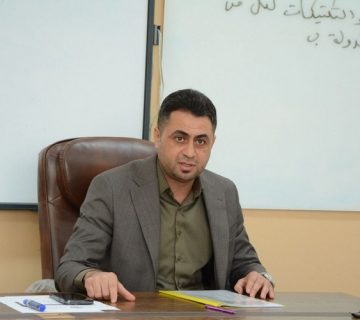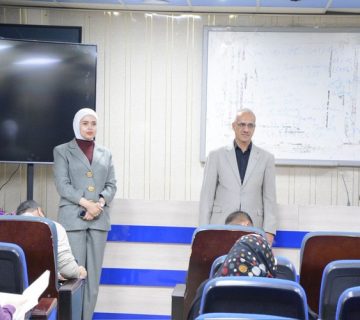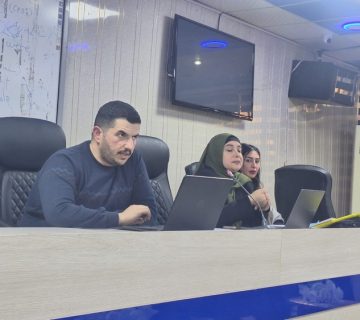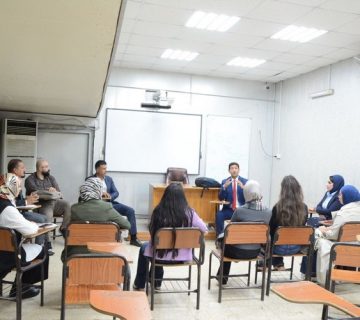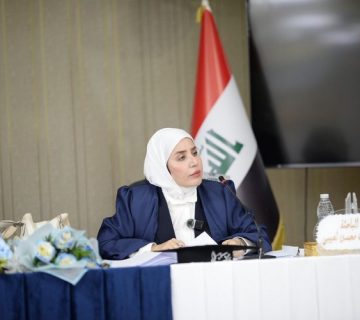The College of Political Science at the University of Baghdad organized a lecture for postgraduate students on the dissemination of scientific research in reputable journals under the title “The Political and Social Reality of Muslim Minorities in Myanmar: An Evaluative Perspective of International Intervention.”
Assistant Professor Dr. Hamsa Qahtan Khalaf, during her lecture, pointed out the definition of the problem of the Muslim minority in Myanmar and understanding the facts of persecution based on religious and racial motives, among others, in terms of their causes and developments, given that this is an old problem that is currently a hot topic, especially in light of the roles played by regional and international powers. Myanmar has faced significant challenges and several problematic issues related to the lack of political and social stability stemming from the continued armed conflict and unstable relations between the government and its Muslim minorities. These minorities continue to face the risks of genocide and political persecution. She illustrated that the political and social reality experienced by the Muslim minorities in Myanmar is filled with crises and extended tensions rooted historically back to the colonial period, then persisting post-independence, as the problematic status of Muslim minorities worsened with the continuation of armed conflict without resolution, amidst political instability following the transition from military rule to civilian democratic governance. The lecture ended with an open dialogue session for postgraduate students to answer inquiries and queries regarding the lecture.






